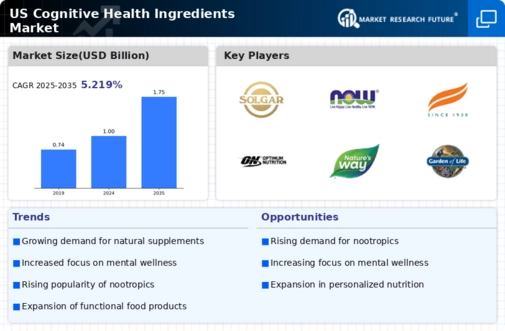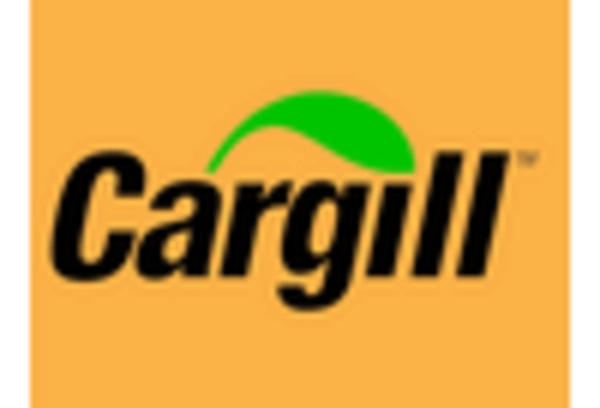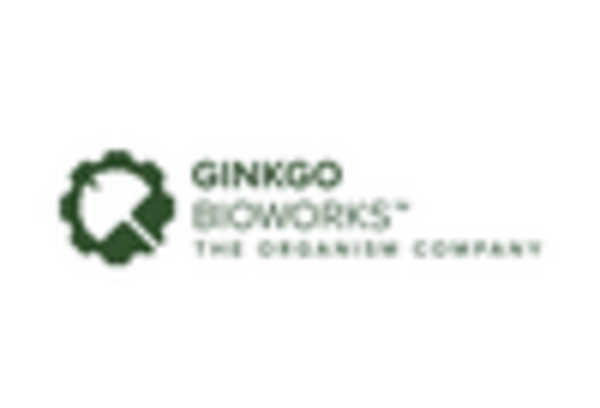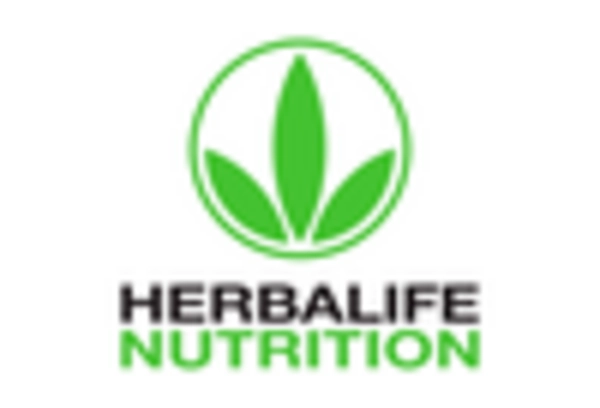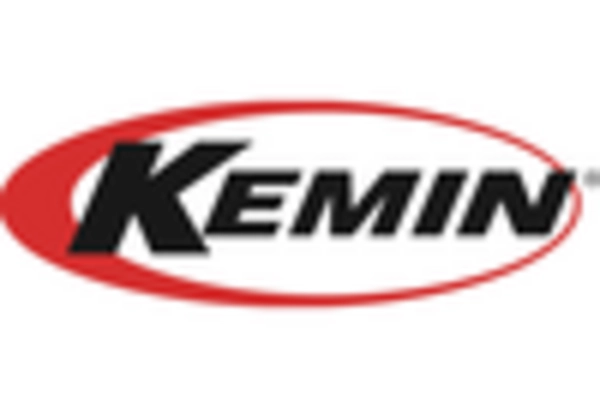Increasing Aging Population
The cognitive health-ingredients market is experiencing growth due to the increasing aging population in the United States. As individuals age, they often face cognitive decline, leading to a heightened demand for products that support mental acuity and memory retention. According to the U.S. Census Bureau, the population aged 65 and older is projected to reach 80 million by 2040, representing a substantial market segment. This demographic shift is driving innovation in cognitive health-ingredients, as manufacturers seek to develop formulations that cater to the specific needs of older adults. The market is likely to see a surge in products containing ingredients such as ginkgo biloba and omega-3 fatty acids, which are known for their cognitive benefits. Consequently, the aging population is a significant driver of growth in the cognitive health-ingredients market.
Rising Awareness of Mental Health
There is a growing awareness of mental health issues among the U.S. population, which is positively influencing the cognitive health-ingredients market. As more individuals recognize the importance of mental well-being, they are increasingly seeking supplements and functional foods that promote cognitive function. Surveys indicate that approximately 1 in 5 adults in the U.S. experience mental illness, which has led to a greater focus on preventive measures. This trend is prompting consumers to explore cognitive health-ingredients that may enhance memory, focus, and overall brain health. The market is responding with a diverse range of products, including nootropics and herbal supplements, aimed at addressing these concerns. As awareness continues to rise, the cognitive health-ingredients market is expected to expand, driven by consumer demand for effective mental health solutions.
Growth of the Nutraceutical Sector
The cognitive health-ingredients market is benefiting from the overall growth of the nutraceutical sector in the United States. The nutraceutical industry, which encompasses dietary supplements and functional foods, has seen a significant increase in consumer interest, with the market projected to reach $300 billion by 2025. This growth is largely attributed to the rising consumer preference for natural and health-promoting products. As part of this trend, cognitive health-ingredients are gaining traction, with consumers seeking out products that offer cognitive enhancement and support. Ingredients such as Bacopa monnieri and phosphatidylserine are becoming increasingly popular, as they are believed to improve cognitive performance. The expansion of the nutraceutical sector is thus a key driver for the cognitive health-ingredients market, as it creates a favorable environment for innovation and product development.
Increased Focus on Healthy Lifestyles
The cognitive health-ingredients market is being propelled by an increased focus on healthy lifestyles among consumers in the United States. As individuals become more health-conscious, they are actively seeking products that support cognitive function as part of their overall wellness regimen. This trend is reflected in the rising demand for functional foods and supplements that contain cognitive health-ingredients. Research indicates that nearly 70% of U.S. adults are incorporating dietary supplements into their daily routines, with a significant portion specifically targeting cognitive health. Ingredients such as curcumin and vitamin E are gaining popularity for their potential cognitive benefits. The emphasis on healthy lifestyles is thus a vital driver for the cognitive health-ingredients market, as it encourages consumers to prioritize mental well-being alongside physical health.
Technological Advancements in Product Development
Technological advancements are playing a crucial role in shaping the cognitive health-ingredients market. Innovations in extraction and formulation techniques are enabling manufacturers to create more effective and bioavailable cognitive health products. For instance, advancements in nanotechnology and encapsulation methods are enhancing the delivery of active ingredients, thereby improving their efficacy. Additionally, the rise of personalized nutrition, driven by technology, is allowing consumers to tailor their cognitive health-ingredients based on individual needs and preferences. This trend is likely to lead to the development of customized supplements that cater to specific cognitive health concerns. As technology continues to evolve, it is expected to drive further growth and diversification within the cognitive health-ingredients market.
.png)

